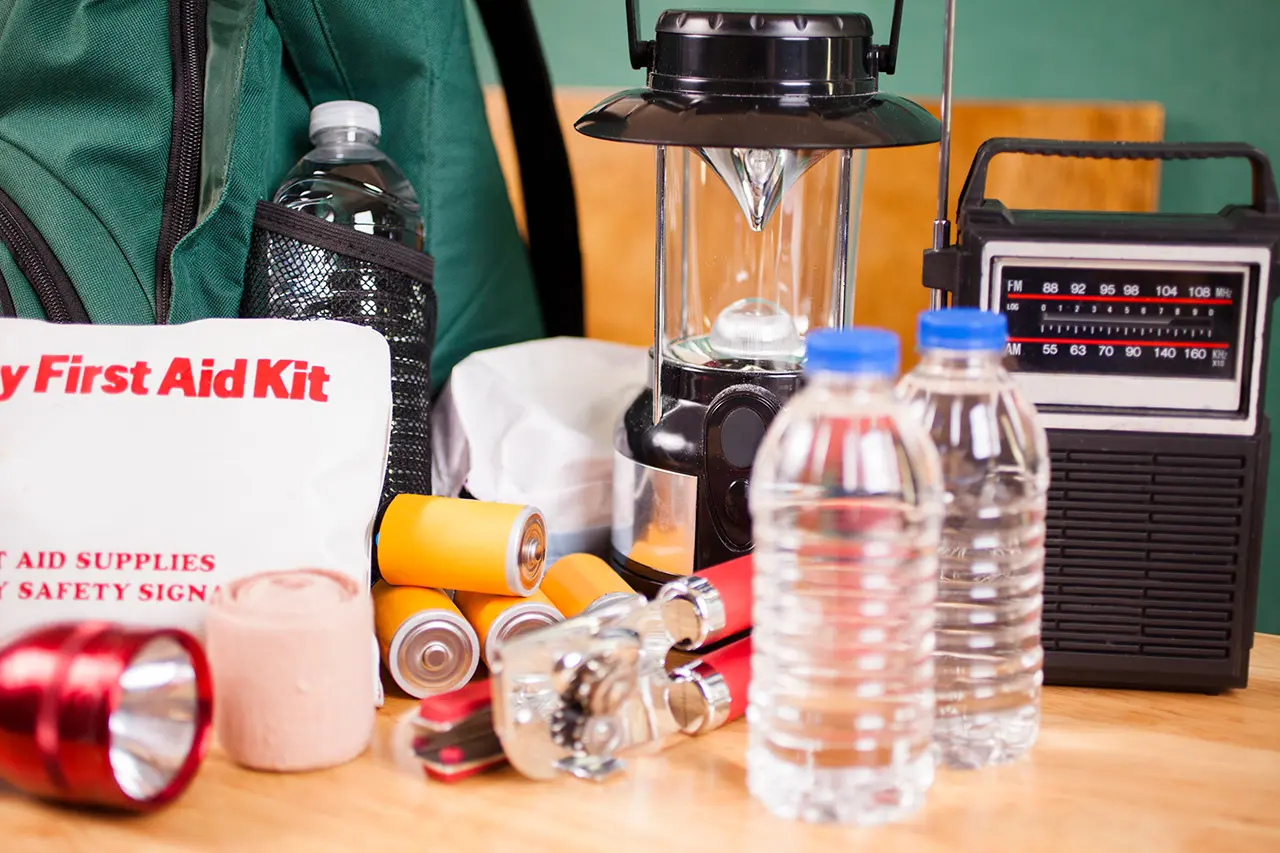
“Making bail” is such a commonly used phrase in police procedural dramas that most people probably feel they have a solid grasp of how the bond system works in America. But they would be wrong because bail and bonds can be handled differently from county to county and even judge to judge. A good understanding of the bond system, coupled with the add-on bail bond coverage U.S. LawShield offers, may help minimize your time in jail and save your bank account after a self-defense incident.
What’s the Difference Between Bail and Bond?
Bail is the monetary amount required to be paid in full to the court in order to get out of jail. A bond is required if a person is unable to pay the full cash amount of bail. To be released on bond, a percentage of the total bail amount is paid to a professional bail bondsman, who will act as a surety and pay the remaining amount of bail if the defendant fails to appear at their assigned hearing.
While there may be similarities, there are also subtle differences in the way states handle releasing people on bond. For example, while bail bond agents are highly regulated and located just across the street from the courthouse in most states, you won’t find a professional bondsman in Kentucky. Instead, non-refundable bail payments (10% of the total bond) are paid directly to the court where the case is pending.
Because the systems can vary, we’re going to compare three different state-level examples. Your state’s system might be different, so be sure to contact U.S. LawShield and ask to speak to your state’s Independent Program Attorney if you have any questions about bail or bonds.
Texas
In Texas, for most criminal charges, the accused is entitled to be released on bond while awaiting trial. A judge determines the conditions of bond and the bail amount. Although there are some crimes, such as capital offenses, for which the court is permitted to hold the accused without bail, judges still have discretion. Especially in self-defense cases, judges can and often do release the accused on bond while awaiting trial. The purpose of a bond is to ensure the accused person’s appearance at subsequent court proceedings and protect the community against any unreasonable danger. Some common bond conditions include travel restrictions, drug or alcohol screening, and weapons restrictions.
The accused will almost always lose the fees paid to the bondsman and often spend months or years with onerous travel restrictions and a ban on their firearm rights. While a person may ultimately be exonerated in a justified defensive use of force case, the bond system and the associated fees and conditions are one of the reasons Independent Program Attorney Richard Hayes says, “Even if you win your case, you still lose.” It is important to have an attorney who understands Texas’s bond systems to minimize the amount of time confined and improve the chances of mounting an effective defense.
Florida
In Florida, anyone who is arrested for a crime is entitled to bail unless they are charged with a capital felony or a felony punishable by life in prison. Even then, a bond may be possible, but a court will first conduct an evidentiary hearing and then decide whether to grant or deny bond. At the evidentiary hearing, the State must overcome the highest evidentiary standard in the Florida criminal justice system, “Proof evident, presumption great,” for the court to deny bond. Even if the State does meet this high burden, the court can still grant a bond if it deems it appropriate.
For all other crimes, bond is generally set in accordance with a predetermined bond schedule. Each county in Florida has its own bond schedule that sets out the bond amount for specific crimes. Typically, when a person is arrested, there is a bond already set by the county’s bond schedule and the individual can bond out after booking. If the person is not able to afford the bond or if for some reason a bond is not already set (e.g., domestic charge), then the person will appear before a judge within 24 hours of arrest to address bond. The bond schedule is not mandatory, and a judge may vary from the suggested bond amount. Furthermore, a judge may release an individual on his or her own discretion and not require a cash bond at all.
If a person posts a cash bond and does not use a bond agent, the money paid will be returned at the end of the case; however, courts are authorized to deduct fines and court costs from the bond prior to releasing it. Furthermore, if the person fails to appear for court, the bond can be forfeited. If a person elects to use a bondsman to post the amount, he or she will not have to post the entire amount of the bond. In Florida, bond agents require 10% of the bond to be paid to them as their fee to post the bond, with a minimum fee of $100. This amount is set by law and is not negotiable. Bond agents may also require collateral for the balance of the bond to ensure that if the person bonded out skips town, they do not take the loss.
Illinois
Illinois recently passed a law that removes the cash bail system entirely. Independent Program Attorney Michael A. Johnson explains the new law: “We have been waiting for this new legislation for some time here in Illinois. The new laws, which do not take effect until January 2023, will, for the most part, do away with the need for the accused to sit in jail waiting to go to trial because he cannot afford to post the money needed for bail. This new law will be used to allow offenders to remain out of jail in cases where the judge determines that the individual is not a threat to himself or others. In the most serious of cases involving homicides or injuries to the victim that could be life-threatening, judges can, in their discretion, hold the charged offender in custody without a bond being set. If the accused is a first-time offender and there are no serious injuries, he or she should not have to post any cash bond. If the accused has a legitimate defense—such as self-defense—this could help the individual still be released even in a homicide case.”
How Bonds Affect You
Being prepared for self-defense includes being prepared to legally defend yourself after the incident occurs. As a U.S. LawShield member, you already have access to an Independent Program Attorney licensed in your state. Members who add Bail Bond and Expert Witness coverage receive bond fee protection for bail up to $50,000 and an expert witness at trial, if necessary. For more information about how bail and bonds work in your state, contact U.S. LawShield and ask to speak with your state’s Independent Program Attorney.
The information provided in this publication is intended to provide general information to individuals and is not legal advice. The information included in this publication may not be quoted or referred to in any other publication without the prior written consent of U.S. LawShield, to be given or withheld at our discretion. The information is not a substitute for, and does not replace the advice or representation of a licensed attorney. We strive to ensure the information included in this publication is accurate and current, however, no claim is made to the accuracy of the information and we are not responsible for any consequences that may result from the use of information in this publication. The use of this publication does not create an attorney-client relationship between U.S. LawShield, any independent program attorney, and any individual.





Thanks for explaining the differences between bail and bonds. My cousin just called me and asked for me to help get him out of jail because he got a DUI. I will contact a bondsman to help me understand the process.
You’re welcome!
So paying uslawshield for this option would mean an incarcerated person whose bail was set at 10k uslawshield would bond them out?!
Its interesting when you said that a bond is required if a person is unable to pay the full cash amount of bail. My uncle wants to bail his son out but does not know much about bail bonds and where to begin. I will show your article to him so that he can get to know more about bail bonds and how to proceed with them. Thank you so much for this article!
We’re glad you enjoyed it! Thanks for reading.
Hello there! Hope you’re doing fine. Now, my former colleague was arrested last night for allegedly drunk driving and she’s asked me for my help. Your detailed explanation about how varied the regulations regarding bonds are was really helpful. I’ll seek professional assistance immediately so she can get out of this mess.
Yup, it’s me again. Sorry to bother you. I just keep on thinking about your clarification regarding the availability of bail bond providers around a court complex for our convenience. I’ll use this tip to make some suitable subsequent procedures very soon. I just have to see my cousin first because he’s been accused of money laundering yesterday.
Hmm… interesting. It was quite reassuring to find out that bail bond agents can be easily found near a courthouse in many places. My cousin is under police custody at the moment for allegedly vandalizing a public bus stop the other day. This article should inspire him to reach out to a bondsman right away.
A trustworthy bail bonds service 24h can provide much-needed peace of mind in urgent situations. Providers offering fast processing and support during odd hours stand out